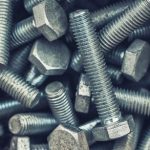
ACME and trapezoidal threaded products appear similar at a glance. In fact, these two threads were developed around the same time and are more similar than different. What is the difference between ACME thread and trapezoidal thread, and which should you choose? Until the late 1800s, square threads were in common use for heavy loads… Read more »



